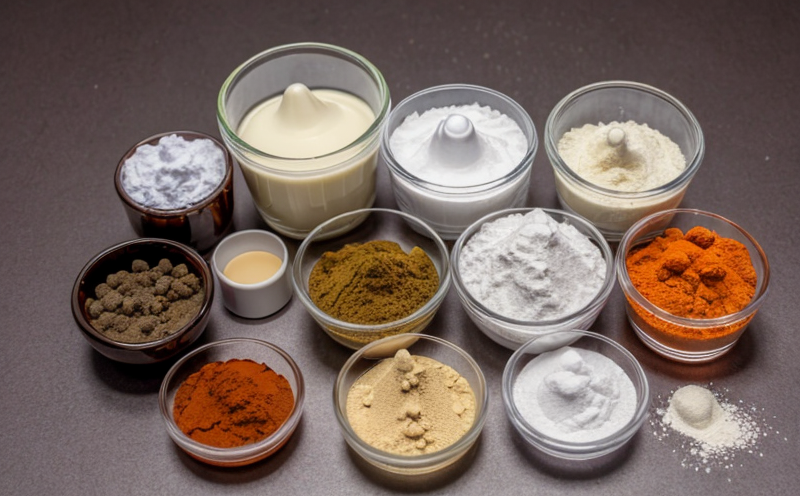ICH Q3C Residual Solvents Testing
The International Conference on Harmonisation (ICH) guidelines provide a framework to ensure the quality, safety, and efficacy of pharmaceutical products. One of these guidelines is ICH Q3C, which outlines the testing procedures for residual solvents in drug substances and excipients.
Residual solvents are organic compounds that remain after solvent-based processes in the manufacture of APIs (Active Pharmaceutical Ingredients) or excipients. These solvents can introduce impurities into the final product, posing potential risks to patient safety. Compliance with ICH Q3C is essential for ensuring that pharmaceutical products meet regulatory standards and consumer expectations.
The testing process involves several steps, including sample preparation, selection of appropriate analytical techniques, and interpretation of results according to predefined acceptance criteria. Sample preparation typically includes dissolution or extraction methods tailored to the specific excipient being tested. The choice of analytical technique depends on the type of solvent to be detected; common methods include gas chromatography (GC) and high-performance liquid chromatography (HPLC).
ICH Q3C specifies a list of solvents that must be tested, categorized into four classes based on their toxicity and potential for adverse effects. The testing process is designed to detect even trace amounts of these solvents, which can significantly impact product quality if not controlled properly. This stringent approach underscores the importance of accurate and reliable analytical methods in pharmaceutical manufacturing.
Compliance with ICH Q3C requires not only precise laboratory techniques but also robust quality management systems to ensure consistent results across different batches and production sites. The testing process must be validated, and all personnel involved must receive adequate training to perform the tests correctly. This ensures that every batch of pharmaceutical product meets the stringent requirements set by regulatory bodies.
In summary, ICH Q3C residual solvents testing is a critical step in ensuring the safety and quality of pharmaceutical products. By adhering to these guidelines, manufacturers can demonstrate their commitment to producing high-quality, safe drugs that meet both regulatory standards and patient needs.
Applied Standards
| Standard | Description |
|---|---|
| ICH Q3C | Guidance on the determination of residual solvents in drug substances and excipients. |
| ASTM E902-18 | Standard test method for the identification and quantification of volatile organic compounds by gas chromatography/mass spectrometry (GC/MS). |
| ISO 7653:1994 | Gas Chromatographic Determination of Residual Solvents in Polymers. |
| USP : Residual Solvents | American Pharmaceutical Association’s standard for identifying and quantifying residual solvents in drug products. |
Eurolab Advantages
Eurolab stands out as a premier provider of ICH Q3C residual solvents testing services, offering comprehensive solutions tailored to the pharmaceutical industry. Our team of experts ensures that every test meets the highest standards of accuracy and reliability.
We employ state-of-the-art instrumentation and cutting-edge analytical techniques to provide precise results that are essential for regulatory compliance. Our extensive experience in this field allows us to offer customized testing protocols that address the unique requirements of each client.
Our commitment to quality is reflected in our adherence to strict internal controls, rigorous validation processes, and continuous training for our personnel. This ensures consistency and accuracy in every test we perform. Additionally, Eurolab maintains strong relationships with regulatory bodies and industry associations, ensuring that our services remain at the forefront of current standards.
Client satisfaction is a top priority, and we pride ourselves on providing timely reports and transparent communication throughout the testing process. Our flexible approach allows us to accommodate various scheduling needs, making it easier for clients to integrate our services into their operations seamlessly.
In summary, Eurolab’s expertise, advanced technology, and unwavering commitment to quality make us the ideal partner for all your ICH Q3C residual solvents testing needs. With us, you can be confident that your pharmaceutical products will meet the highest regulatory standards and deliver consistent results.
Competitive Advantage and Market Impact
Eurolab’s leadership in ICH Q3C residual solvents testing is driven by our cutting-edge technology, experienced team of professionals, and unwavering commitment to quality. Our services are designed to help pharmaceutical companies maintain regulatory compliance while ensuring the safety and efficacy of their products.
Our competitive advantage lies in our ability to offer comprehensive, accurate, and timely results that meet or exceed industry standards. We utilize advanced GC/MS instrumentation and follow rigorous validation protocols to ensure consistent and reliable test outcomes. This level of precision is crucial for maintaining high-quality standards in the pharmaceutical sector.
Our expertise extends beyond just providing testing services; we also offer valuable insights into regulatory requirements, helping clients stay ahead of industry trends and changes. By leveraging our deep understanding of ICH Q3C guidelines, we assist manufacturers in optimizing their production processes to minimize residual solvent levels while ensuring product quality.
Our reputation for excellence has earned us a loyal client base that spans the pharmaceutical industry. We consistently receive positive feedback from clients who appreciate not only our technical expertise but also our proactive approach to problem-solving and continuous improvement. This commitment to innovation and excellence ensures that we remain at the forefront of pharmaceutical testing services.
In conclusion, Eurolab’s comprehensive ICH Q3C residual solvents testing services provide a competitive edge in an increasingly regulated and quality-conscious market. By partnering with us, clients can ensure their compliance with regulatory standards while enhancing product safety and efficacy.





